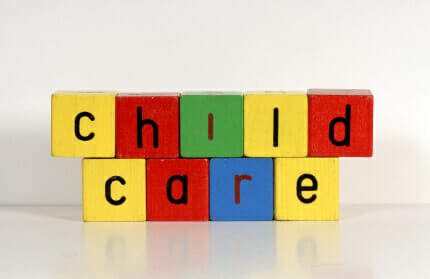7 Common (and Preventable) Daycare Safety Violations

About 13 million infants, toddlers, and preschool children are enrolled in child care. Parents and legal guardians rely on child care centers to provide safe substitute care when they are unable to stay home with their children.
Unfortunately, not all daycares are as adamant about protecting your child’s safety as they should be. Further, depending on the state you live in and the type of daycare your child attends, state and local governments may provide little to no additional regulatory oversight at all. This is why it is important to be on the lookout for potential hazards and lapses in daycare supervision.
Below are a few common missteps you may want to address in your conversations with your childcare provider. Remember, it is okay to ask questions. Good daycare providers are proud of their facilities and the services they provide – they will be happy to present you with the materials and answers needed to put your mind at ease.
-
Inadequate Supervision
Infants and toddlers should be under supervision at all times. Unfortunately, some daycares fail to properly staff their facilities, leaving children at an increased risk of accidents and injury. Before entering a child into a daycare facility, parents and guardians should ask about the caregiver-to-child ratio.
Additionally, parents and guardians should ask how children are transitioned from one area to another and how often caregivers complete name and face checks to ensure every child is accounted for.
-
Failure to Conduct In-Depth Background Checks
Surprisingly, only 13 states require licensed childcare facilities to conduct comprehensive background checks on staff members, and only 11 states require background checks for individuals seeking to operate a home childcare business.
Failure to conduct background checks could leave children exposed to dangerous individuals.
Parents and guardians are urged to be proactive on this issue. Ask the director of the daycare what precautions are taken to ensure children attending are safe from physical and sexual abuse. Parents can also check a daycare’s track record by going through state agencies and reporting services.
-
Lack of Training
All teachers and caregivers employed by a childcare center should undergo safety and injury prevention training. Talk to the childcare director about their center’s employee training process. You can also request copies of first aid and CPR cards to see who on staff has adequate training.
Parents and guardians should also practice continued vigilance and make sure the staff is following all health and safety rules at all times.
-
Unsafe or Recalled Products and Equipment
Nursery equipment and children’s toys are recalled regularly, and daycares have a duty to ensure unsafe items are removed in a timely manner.
Parents and guardians should ask their childcare provider if they receive recall updates from agencies like the Consumer Product Safety Commission (CPSC). Additionally, parents should ensure that a daycare’s staff is completing regular inspections to check for damaged and potentially dangerous equipment as well as and choking and strangulation hazards.
-
Failure to Exercise Proper Food Safety
Foodborne pathogens can result in serious and potentially fatal infections, especially in young children and children with weakened immune systems.
Similar to consumer products, daycares should have a process by which they check for and/or are notified of food product recalls. Additionally, any staff member who handles food should be properly trained in food handling safety.
If your child has food allergies, ask about safeguards that are in place to prevent accidental cross-contamination. Also ask about preventive measures, like labeling, that are in place to keep a child from accidentally being fed allergenic food.
-
Poisons and Toxic Substances
More than 300 children are treated in emergency departments for poisoning every day. On average, two of those children die.
Parents should ask what kind of cleaning products are used by a daycare, where they are stored, and if they are locked away. Parents should also inquire about the safe storage of medications, cosmetic products, and any other substances that could result in an adverse reaction.
Parents should also make sure that any cleaning supplies are stored far away from food to avoid potential confusion by children.
-
Failure to Practice Proper Emergency Preparation
Not all accidents are preventable – natural disasters, health-related emergencies, fires, and violence can and do happen. A daycare facility should have a plan in place that cover any and every foreseeable emergency.
Parents and guardians should discuss what plans are in place ask how often emergency plans are practiced and updated. Daycares should also be able to provide a log keeping track of drills and should have a number parents can call in the event of an emergency.
Finally, take the time to observe a fire drill and see if it is done effectively.

